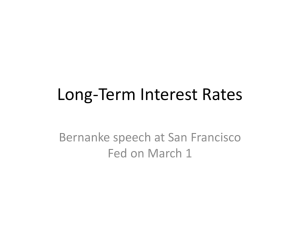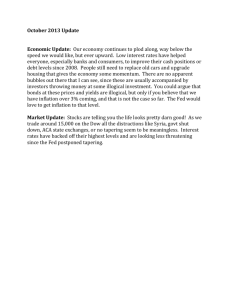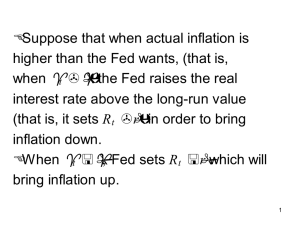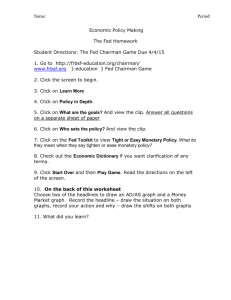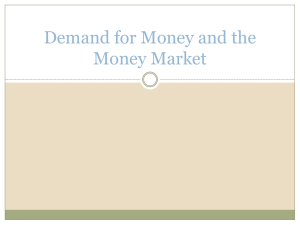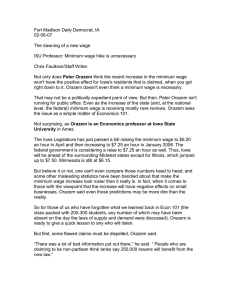Council Bluffs Daily Nonpareil, IA 06-30-06
advertisement
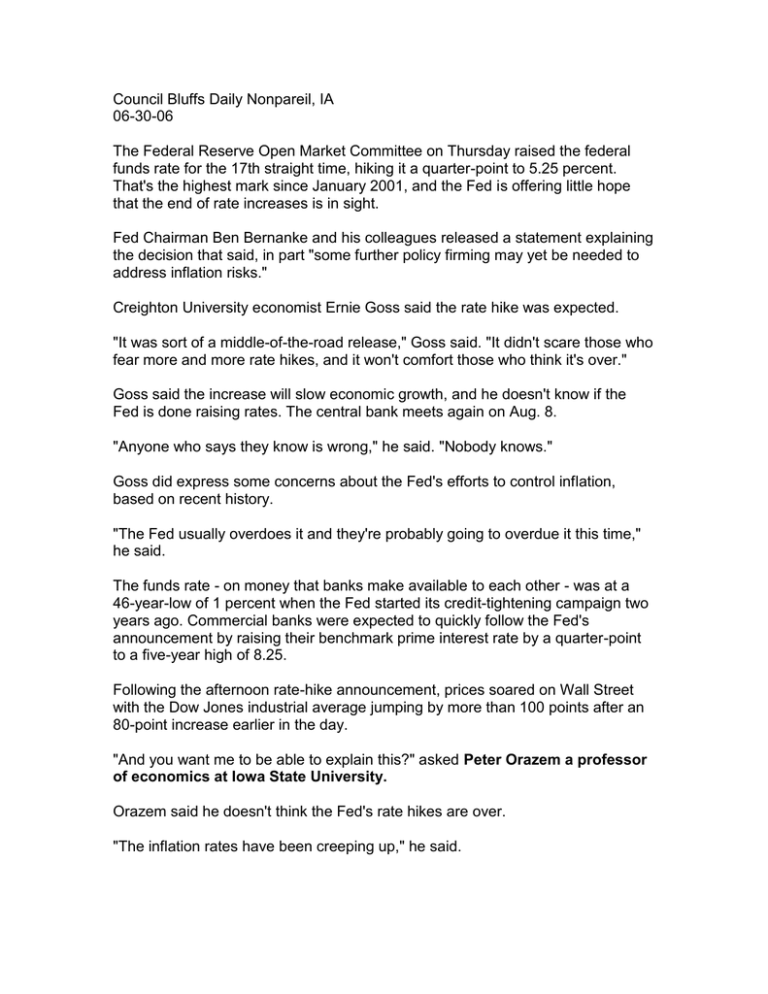
Council Bluffs Daily Nonpareil, IA 06-30-06 The Federal Reserve Open Market Committee on Thursday raised the federal funds rate for the 17th straight time, hiking it a quarter-point to 5.25 percent. That's the highest mark since January 2001, and the Fed is offering little hope that the end of rate increases is in sight. Fed Chairman Ben Bernanke and his colleagues released a statement explaining the decision that said, in part "some further policy firming may yet be needed to address inflation risks." Creighton University economist Ernie Goss said the rate hike was expected. "It was sort of a middle-of-the-road release," Goss said. "It didn't scare those who fear more and more rate hikes, and it won't comfort those who think it's over." Goss said the increase will slow economic growth, and he doesn't know if the Fed is done raising rates. The central bank meets again on Aug. 8. "Anyone who says they know is wrong," he said. "Nobody knows." Goss did express some concerns about the Fed's efforts to control inflation, based on recent history. "The Fed usually overdoes it and they're probably going to overdue it this time," he said. The funds rate - on money that banks make available to each other - was at a 46-year-low of 1 percent when the Fed started its credit-tightening campaign two years ago. Commercial banks were expected to quickly follow the Fed's announcement by raising their benchmark prime interest rate by a quarter-point to a five-year high of 8.25. Following the afternoon rate-hike announcement, prices soared on Wall Street with the Dow Jones industrial average jumping by more than 100 points after an 80-point increase earlier in the day. "And you want me to be able to explain this?" asked Peter Orazem a professor of economics at Iowa State University. Orazem said he doesn't think the Fed's rate hikes are over. "The inflation rates have been creeping up," he said. Orazem pointed to the May Consumer Price Index that was at 4.1 percent according to the Department of Commerce compared to 2.9 percent at the end of May 2005. "Of course some of that is commodity prices that they're less concerned about. They (the Federal Reserve) think those are responding to international forces," he said. Orazem also point out that inflation was acting in a similar manner before the last recession in 2001, a recession some economists blame on the Fed, although he doesn't necessarily think that' s right. "Let's just say I'm surprised the market went up 150 points," he said. On June 5 when Bernanke commented that an increase in the inflation rate was an "unwelcome" development, the Dow fell 199 points in one day. Thursday was apparently an optimistic day on Wall Street, Orazem said, but he's not sure what today will bring. - The Associated Press contributed to this report

